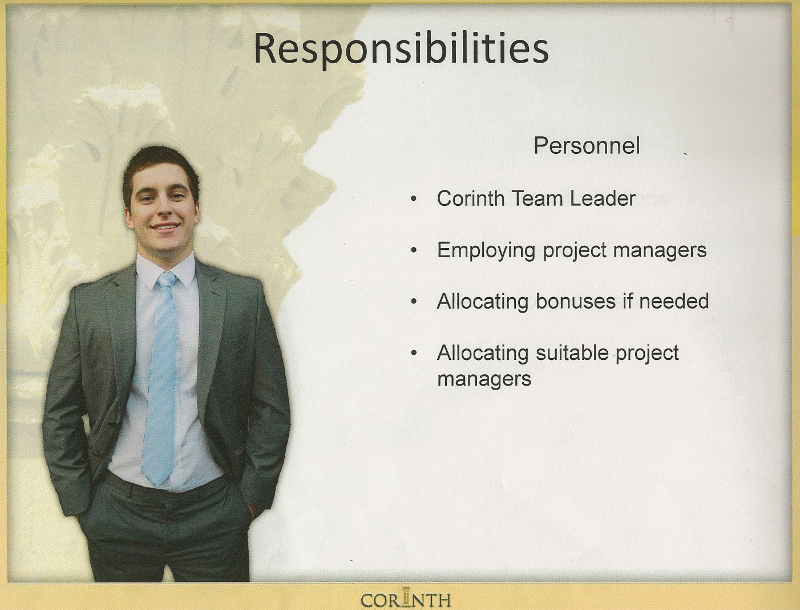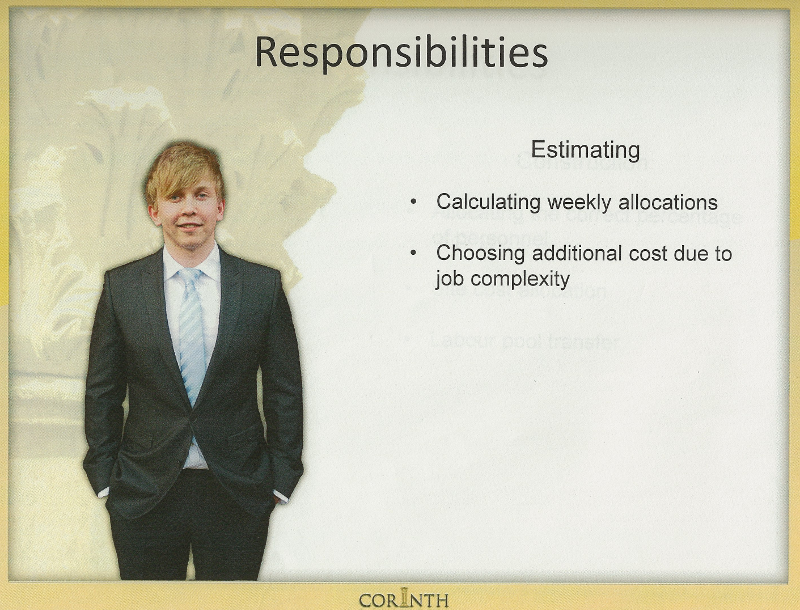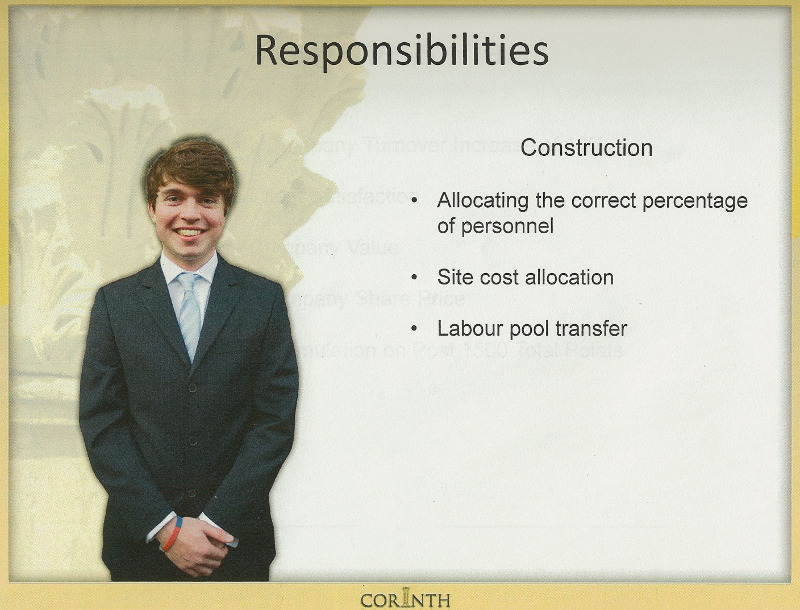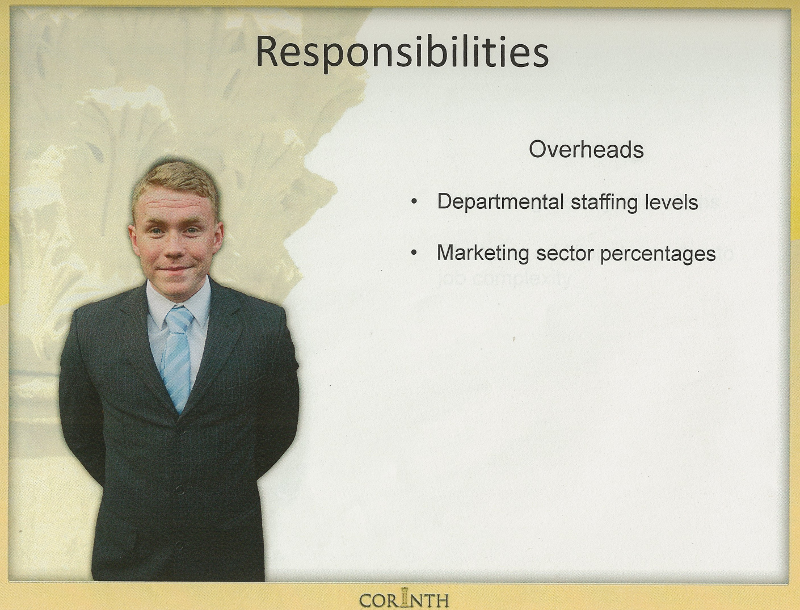The elements of MERIT
MERIT simulates the operation of a construction company and offers training in Company, Business and Financial management in a construction context. The MERIT training experience raises the awareness of the participants to the high level company decisions and responses to market and other changes.
The participants learn through participating, taking decisions, seeing results. This is an active involvement in the learning process and is a learning approach that appeals to the young professional; and the more mature students.
The following outlines the key elements in which participants are required to take decisions. This requires a development of an understanding of the background to these decisions and the impact of them. This background can be obtained from the MERIT tutorial or through wider reading.
Company Management includes:
- determining the Company strategy, its target markets, target size in terms of turnover and value
- deciding on the head office support staff required
- which jobs in each market sector to bid for
- the estimating effort required to ensure accurate estimates
- the staffing of individual contracts through own labour, sub-contractors and project managers
Business Management includes:
- Determining the best market sectors
- developing and maintaining client relationships
- ensuring that the Company Management responds to the development of the market
Financial management includes:
- ensuring that the company has enough capital to support its workload
- ensuring that the company hasn't an excess of underused capital by investing
- managing the company's cash account
- determining the rewards paid to shareholders through dividends
Experiencing leadership challenges-teamwork
MERIT exposes participants to the totality of a business in a construction context and covers company management, financial management and business management.
These extend the participants thinking into topics and issues that they don't experience in their day to day work or studies. This raises their horizons, sets their own activities into a wider context and demonstrates the interconnections between all the elements of business that need to individually be successful to build a successful business.
However the key lesson is 'teamwork' or working together. Participating teams who take a casual approach to organising the decision making processes in the MERIT simulation perform less well. Some teams operate as a collective with each team member participating in every decision without clear individual responsibilities. These teams perform also perform less well.
The more successful teams are those that organise themselves as a 'Board of Directors' would and take decisions as company directors do. This means each team member having clear defined responsibilities. The individual team member needs to understand all aspects of the input to the decisions for which they are responsible. The team member is an individual specialist.
The key post is that of Chief Executive Officer or Managing Director or team leader. This role is the one that oversees the work of all others and their own responsibility as well. The CEO ensures that actions of each team member is taken on time and by questioning the colleague ensures that the recommendations they are making are sound.
Consider a Board Meeting. Each individual reports on their activity since the last meeting, makes recommendations and seeks approval of the Board. The CEO and other Board Members then interrogate the individual to test that the recommendations are soundly based and have not arrived at on a casual or ill-informed basis. In this way the quality of each suggested decision is tested.
Individual decisions such as employing labour or deciding with contracts to bid for sit within a 'Company Strategy', The strategy is the collective responsibility of the Board. Arrived at after each individual, responsible for their own area of responsibility has had an input. Strategy formulation will face conflicting senarios, conflicting views and conflicting data. These are resolved by disciplined discussion. The discipline is imposed by the CEO. This is leadership. The most important aspect of strategy is to determine whether it's achievable and how to implement it. Without these there is no effective strategy. The CEO together with their team of expert Board members must be convinced that they have a sound strategy.
However the greatest aspect of strategy is flexibility. When the original strategy doesn't work out, when the market changes, when competition increases, when the financial status is difficult, does the Board have the wit to recognise the changes and the strength to change the strategy. An effective Board will, a casual board will plough on with the original and now failing strategy. Flexibility is a strength.
The teams that adopt a disciplined approach to Board responsibilities, Board decisions, strategy reviews and responses are the most successful in MERIT simulations as they would be in life.
The successful teams adopt the mantle of senior directors they act like senior directors, conduct themselves as senior directors, talk like senior directors. Steeped in the MERIT simulation this role play becomes part of the simulation. Some even dress as senior directors when their Board meets. These committed teams have taken a step away from being junior staff or students and are adopting the attitudes and behaviour that will sustain them in the more responsible roles they will fill in times to come.
One team and their distribution of responsibilities
This was a serious fully committed team. Note their dress, they turned up to their own Board meetings dressed for business. They said that to get fully involved they had to act like business, talk like business and dressing like business reminded them that this was real, this wasn't just a game. These participants were preparing themselves for future tasks.
Reports from student teams on their MERIT training experience
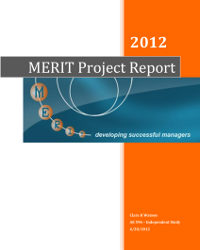 |
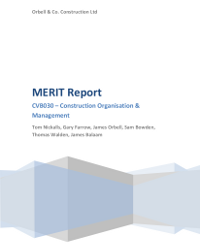 |
|
| Penn State University | Loughborough University |








